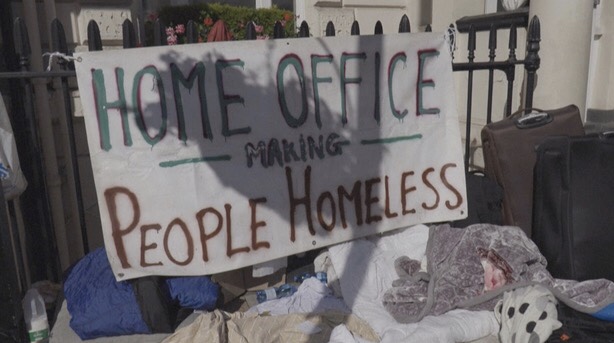In a bid to sure up its core support following the loss of two by-elections this week, the UK government announced Tuesday 24th October, that by the end of January it will be ending contracts with 50 of the 400 hotels being used to house migrants seeking asylum in the UK.

The Immigration Minister, Robert Jenrick MP addressed the House of Commons on Tuesday and said:
‘We believe that the British public believe in strong borders, they want a robust and fair immigration and asylum system…We will now be exiting the first asylum hotels…our plan is working’
In his closing remarks Jenrick took a swipe at the Labour Party’s proposed ‘new towns’ plan, which he said would be:
‘filled with illegal migrants’ and that Labour intended to ‘wave in [migrants and] force the British public to grudgingly accept mass migration’
UK Government hopes to redeem the credibility of its principal pledge to tackle migration
The move to shift asylum seekers out of hotel accommodation is a response to continuing negative news coverage which shows that the Home Office is spending upwards of £8million a day to accommodate 51,000 migrants. The UK Prime Minister, Rishi Sunak, and Home Secretary, Suella Braverman are hoping that the announcement will be accepted as a clear indication that the government is making significant progress on one of the principal five pledges made by the government at the start of his administration a year ago this week – to tackle migration in small boats.
The devil is in the detail
Whilst this announcement is clearly designed to create positive headlines, there are many questions which arise as to what will happen to the migrants once moved. The government has been embroiled in legal challenges during the last 12 months, as it has sought to house migrants on floating barges, disused army barracks and former prisons. The Bibby Stockholm barge, has been at the centre of a row over safety and human rights considerations, not least as a result of the outbreak of legionnaires disease on board, which saw the first tranche of residents removed within days of their arrival back in July. Most of the original 39 residents were returned to the barge this week, with the government still trumpeting its plans to bring the number of barge residents up to 500 by the end of the year.
There have also been a series of negative stories relating to the government’s plans to adapt disused army barracks in order to house the migrants. Councils in West Lindsey at the end of last month, successfully stalled the government’s plans to make alterations to the historic ‘Dam Busters’ RAF Scampton barracks, citing breaches in planning permission. There have also been sizeable protests from local residents who have voiced strong opposition to the placing of such large numbers of migrants in the centre of small parochial communities. More recently questions have been asked as to why the government paid £15 million to purchase an abandoned prison site in the quiet seaside town of Bexhill, East Sussex, which developers had just months earlier paid £6.3 million to acquire. The taxpayer will no doubt be suffering the cost of the £9 million deficit.
There have been also questions raised about the government’s so called ‘maximisation policy’, which is designed to place upwards of 5,000 asylum seekers in shared rooms with people who are not directly related to them.

Forecasts of a major homelessness epidemic
Probably of greater significance is the likelihood that the very same asylum seekers who have been living in hotels – some of them for as long as 24 months, will now find themselves knocking at the door of local authorities, who are likely to have to house them in the very same hotels that they were in to start with. In effect the government has simply passed the cost of housing migrants from the state purse to the pockets of local authority constituents. The Chairman of the Local Government Association (LGA), Shaun Davies, this week explained how local councils have a legal obligation under current legislation to house refugees presenting as homeless, once they leave asylum accommodation. He pointed out however, that:
‘We’ve got a housing shortage, we’ve got a huge demand on temporary accommodation, and we’ve got councils in financial strain’
Notwithstanding that hotels were not a ‘long-term solution’ for housing refugees, he went on to ask:
‘If not those hotels, then where…That’s the irony in this situation, that one part of the system might boast that they’re doing relatively well but actually, that’s shunting the issue and the cost to local taxpayers’
‘Out of sight, out of mind’
Susan Aitken, Leader of Glasgow City Council, responded to the Immigration Minister’s announcement by saying that the Home Office and ministers have failed to plan for the resulting surge in homeless refugees. She said:
‘I think closing hotels will convince voters it is delivering on its ugly rhetoric about getting tough on asylum – when all it is actually doing is moving people around like chess pieces’
She added:
‘Out of sight, out of mind is now the entirety of their asylum policy – even at the risk of a humanitarian crisis in towns and cities across the UK’
















